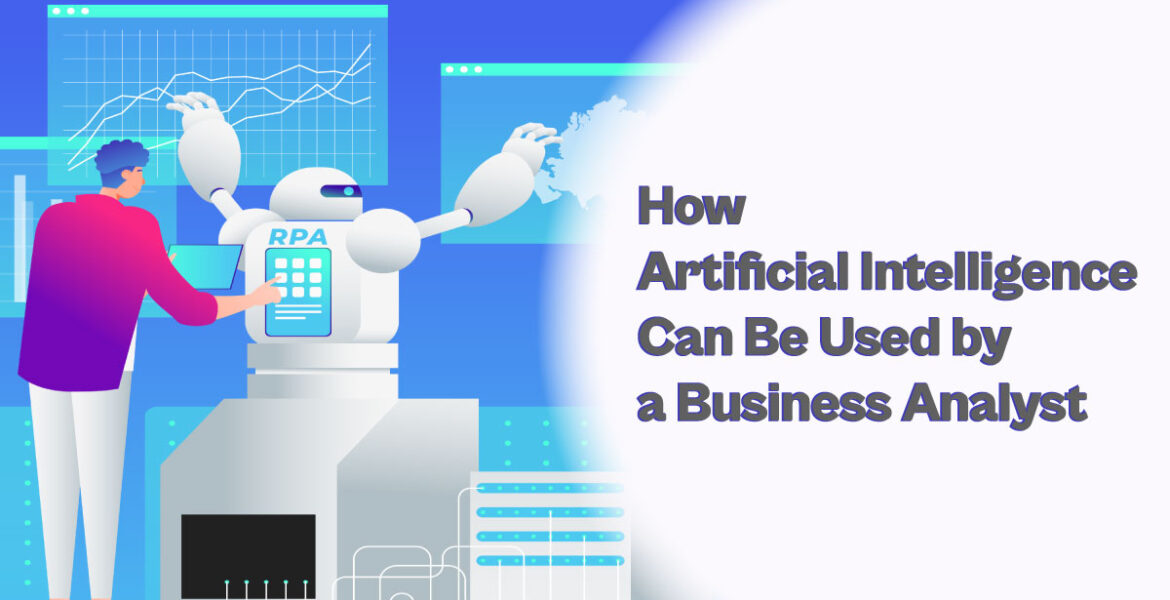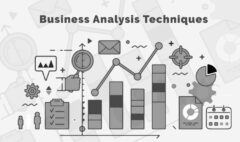How Artificial Intelligence Can Be Used by a Business Analyst
Understanding how artificial intelligence can be used by a business analyst is essential for staying competitive in today’s data-driven environment. This blog explores the multifaceted ways AI is enhancing business analysis, offering insights into its applications, benefits, and the future landscape of this integration. In the rapidly evolving world of business, artificial intelligence (AI) has emerged as a transformative technology that is reshaping industries, creating new opportunities, and significantly impacting how business analysts perform their roles. AI’s influence extends across various sectors, enabling organizations to optimize operations, enhance customer experiences, and drive innovation.
Artificial intelligence in business analysis is revolutionizing traditional practices by automating tasks, enhancing data processing capabilities, and providing advanced analytical tools. AI technologies such as machine learning, natural language processing (NLP), and predictive analytics are empowering business analysts to derive deeper insights, make more informed decisions, and drive strategic initiatives more effectively. Machine learning algorithms, for instance, can analyse historical data to identify patterns and predict future trends, providing business analysts with actionable intelligence that can guide strategic planning and operational adjustments. This capability is particularly valuable in dynamic markets where timely insights can offer a competitive edge.
Natural language processing (NLP) is another AI technology that is transforming business analysis by enabling the extraction of valuable insights from unstructured data sources such as customer reviews, social media posts, and internal documents. By analysing text data, NLP can uncover sentiment trends, identify emerging issues, and enhance understanding of stakeholder communications. This allows business analysts to gain a deeper understanding of customer needs and preferences, leading to more effective marketing strategies and improved customer satisfaction. Furthermore, NLP can automate the processing of large volumes of textual data, significantly reducing the time and effort required for manual analysis.
Predictive analytics, powered by AI, is enabling business analysts to forecast future scenarios with greater accuracy. By leveraging historical data and sophisticated algorithms, predictive analytics can identify potential risks and opportunities, helping organizations to make proactive decisions. This capability is invaluable for risk management, market analysis, and strategic planning. For example, in the financial sector, predictive analytics can help in forecasting market trends, assessing credit risk, and detecting fraudulent activities. By integrating AI-driven predictive analytics into their workflows, business analysts can enhance their ability to anticipate changes and develop strategies that are resilient to market fluctuations.
In conclusion, artificial intelligence is profoundly transforming the field of business analysis. By automating routine tasks, enhancing data processing capabilities, and providing advanced analytical tools, AI is enabling business analysts to uncover deeper insights, make more informed decisions, and drive strategic initiatives more effectively. As AI technologies continue to evolve, the integration of these tools into business analysis practices will become increasingly crucial for maintaining a competitive edge in a data-driven world. Business analysts who embrace AI will be better positioned to navigate the complexities of modern business environments, ensuring that they can contribute meaningfully to their organizations’ success.
Data Collection and Processing
One of the primary ways artificial intelligences can be used by a business analyst is in data collection and processing. AI-powered tools can automate the gathering of data from various sources, including social media, customer interactions, and market trends. This automation not only saves time but also increases the accuracy and reliability of the data collected. Moreover, AI algorithms can process vast amounts of data at unprecedented speeds, identifying patterns and trends that would be impossible for humans to detect manually.
Advanced Data Analysis
AI enhances the analytical capabilities of business analysts by offering advanced data analysis techniques. Machine learning algorithms can analyse historical data to identify patterns and predict future trends. This predictive analytics capability is invaluable for business analysts, as it allows them to forecast market movements, customer behaviours, and potential risks. Additionally, AI can perform sentiment analysis on customer feedback and social media interactions, providing business analysts with insights into consumer perceptions and preferences.
Improved Decision-Making
Artificial intelligence in business analysis significantly improves decision-making processes. AI systems can evaluate multiple scenarios and outcomes based on data inputs, helping business analysts to choose the most effective strategies. For example, AI can assist in supply chain optimization by predicting demand fluctuations and suggesting inventory adjustments. By leveraging AI, business analysts can make data-driven decisions that enhance efficiency, reduce costs, and increase profitability.
Automation of Routine Tasks
Another significant benefit of artificial intelligence in business analysis is the automation of routine tasks. Tasks such as data entry, report generation, and basic data analysis can be automated using AI, freeing up business analysts to focus on more strategic activities. Robotic process automation (RPA) is a key AI technology used in this context. RPA bots can handle repetitive tasks with high precision, ensuring consistency and reducing the likelihood of human error.
Enhanced Customer Insights
AI-driven tools provide business analysts with deeper insights into customer behaviours and preferences. By analysing data from various touchpoints, including online interactions, purchase histories, and customer service engagements, AI can create comprehensive customer profiles. These profiles help business analysts understand customer needs and tailor products and services accordingly. Furthermore, AI can segment customers based on their behaviours and preferences, enabling more targeted marketing strategies.
Risk Management
Risk management is a critical aspect of business analysis, and AI is playing a pivotal role in enhancing this area. Artificial intelligence can identify potential risks by analysing data patterns and detecting anomalies that may indicate fraudulent activities or operational inefficiencies. Predictive analytics can also forecast potential risks, allowing businesses to implement proactive measures to mitigate them. This capability is particularly valuable in financial services, where managing risks effectively is crucial for maintaining stability and profitability.
Natural Language Processing (NLP)
Natural language processing (NLP) is a branch of AI that deals with the interaction between computers and human language. NLP is revolutionizing how business analysts gather and interpret data. Through NLP, AI can analyse vast amounts of text data, such as customer reviews, social media posts, and internal documents, to extract valuable insights. This capability allows business analysts to understand sentiment trends, identify emerging issues, and gain a deeper understanding of stakeholder communications.
Real-Time Data Analysis
In today’s fast-paced business environment, real-time data analysis is crucial for making timely decisions. Artificial intelligence enables business analysts to process and analyse data in real-time, providing up-to-the-minute insights that can drive immediate action. For instance, AI can monitor market conditions and alert business analysts to significant changes, allowing them to respond swiftly to new opportunities or threats.
Personalisation and Customisation
AI-driven personalization is transforming customer experiences across industries. Business analysts can leverage AI to deliver personalized experiences to customers by analysing their behaviours and preferences. AI algorithms can recommend products, tailor marketing messages, and customize services to meet individual customer needs. This level of personalization enhances customer satisfaction and loyalty, driving business growth.
Enhanced Collaboration
Artificial intelligence can also improve collaboration among business analysts and other stakeholders. AI-powered collaboration tools can streamline communication, facilitate information sharing, and enhance project management. For example, AI-driven platforms can automatically organize and prioritize tasks, assign responsibilities, and track project progress. These capabilities ensure that teams work more efficiently and stay aligned with business objectives.
AI in Predictive Maintenance
Predictive maintenance is another area where artificial intelligence can be used by a business analyst. By analysing data from machinery and equipment, AI can predict when maintenance is required, preventing costly breakdowns and downtime. Business analysts can use these insights to optimize maintenance schedules, improve operational efficiency, and reduce maintenance costs.
Competitive Analysis
Understanding the competitive landscape is essential for business success. AI can assist business analysts in conducting comprehensive competitive analysis by monitoring competitors’ activities, analysing market trends, and identifying competitive advantages. This information enables business analysts to develop strategies that capitalize on market opportunities and address competitive threats effectively.
Streamlining Financial Analysis
Financial analysis is a critical function of business analysts, and AI is enhancing this process by automating data collection, processing, and analysis. AI-powered financial tools can analyse financial statements, detect anomalies, and predict future financial performance. Business analysts can use these insights to make informed financial decisions, manage budgets, and optimize financial strategies.
Enhancing Data Security
With the increasing reliance on data, ensuring its security is paramount. Artificial intelligence can enhance data security by detecting and responding to cyber threats in real-time. AI algorithms can identify unusual patterns of behaviour that may indicate a security breach, allowing business analysts to take swift action to protect sensitive information. This capability is crucial for maintaining trust and compliance with regulatory requirements.
Ethical Considerations
As the use of artificial intelligence in business analysis grows, so do the ethical considerations. Business analysts must ensure that AI applications are used responsibly and transparently. This includes addressing issues related to data privacy, bias in AI algorithms, and the potential impact on employment. By adhering to ethical guidelines and best practices, business analysts can leverage AI in a way that benefits both the organization and society.
AI and Business Strategy
Artificial intelligence is also shaping business strategy by providing deep insights into market dynamics and organizational performance. Business analysts can use AI to simulate different strategic scenarios, evaluate potential outcomes, and make data-driven recommendations. This strategic foresight enables organizations to navigate uncertainty, capitalize on emerging trends, and achieve long-term success.
AI in Human Resources
Human resources is another area where artificial intelligence can be used by a business analyst. AI can streamline HR processes such as recruitment, performance evaluation, and employee engagement. For example, AI-powered recruitment tools can analyse resumes, identify top candidates, and predict their suitability for a role. Business analysts can use these tools to improve hiring decisions, enhance employee retention, and optimize workforce planning.
Future Trends in AI for Business Analysis
The future of artificial intelligence in business analysis is promising, with continuous advancements expected in AI technologies. Emerging trends include the integration of AI with other advanced technologies such as blockchain and the Internet of Things (IoT). These integrations will further enhance data accuracy, security, and analytical capabilities. Business analysts must stay abreast of these developments to harness the full potential of AI in their roles.
Training and Development
To fully leverage artificial intelligence in business analysis, ongoing training and development are essential. Business analysts must acquire the necessary skills to work with AI technologies, including understanding AI algorithms, data science principles, and programming languages. Investing in professional development and staying updated with the latest AI trends will ensure that business analysts remain competitive and effective in their roles.
How Digital Business School Can Help You become a Business Analyst
Digital Business School’s Business Analysis course offers a comprehensive and structured pathway to becoming a proficient Business Analyst. Here’s how the course can help you achieve this career transition:
1. Comprehensive Curriculum:
The course covers a wide range of topics essential for Business Analysts, from basic principles to advanced methodologies. Key areas include investigative techniques, stakeholder management, project delivery methodologies, and business analysis process models.
2. Practical Learning Approach:
The blend of theoretical knowledge and practical exercises ensures you not only understand the concepts but also know how to apply them in real-world scenarios. This practical focus is further enhanced by a 3-month internship working on a live project, providing hands-on experience.
3. Accessible to Beginners:
Designed for individuals with no prior experience, the course offers a fresh start for those looking to enter the field of business analysis. It requires only basic computer skills, good English proficiency, and a commitment to learning, making it accessible to a wide audience.
4. Expert Support and Guidance:
Throughout the course, you will receive continuous support from experienced instructors and industry experts. This mentorship is invaluable in helping you navigate the complexities of business analysis and develop professional competencies.
5. Job Readiness and Career Support:
The program includes several career support components, such as CV optimization, job application strategies, and interview preparation. These elements are designed to enhance your job prospects and ensure you are well-prepared to enter the job market with confidence.
6. Tools and Templates:
Access to BA tools and templates equips you with the necessary resources to effectively perform business analysis tasks. These resources are critical for documenting and managing requirements, creating business process maps, and improving business processes.
7. Flexible Learning Schedule:
The course structure includes an initial intensive 2-day webinar, followed by bi-weekly sessions and additional mid-week interview preparation sessions. This schedule allows for both structured learning and flexibility, accommodating different learning paces and styles.
8. Networking Opportunities:
By participating in this course, you will connect with peers, instructors, and industry professionals, expanding your professional network. This can lead to valuable opportunities and insights as you progress in your career.
9. Industry-Relevant Skills:
The course emphasizes the application of various project delivery methodologies (e.g., Agile, Waterfall) and the use of tools like the POPIT model and SWOT analysis. These skills are highly relevant in the industry and will set you apart from other candidates.
In summary, Digital Business School’s Business Analysis course offers a well-rounded education that not only teaches you the fundamentals of business analysis but also provides practical experience, career support, and essential tools. This comprehensive approach ensures that by the end of the course, you are fully equipped to embark on a successful career as a Business Analyst.
Conclusion
Artificial intelligence is transforming the field of business analysis, offering unprecedented opportunities for efficiency, accuracy, and innovation. By integrating AI into their skillset, business analysts can significantly enhance their ability to collect, process, and analyze data. Advanced AI algorithms can handle vast datasets with speed and precision, uncovering patterns and insights that would be impossible for humans to detect manually. This capability not only streamlines the data analysis process but also improves the quality of insights derived, enabling business analysts to make more informed and strategic decisions. Additionally, AI-driven automation of routine tasks, such as data entry and report generation, allows analysts to focus on higher-value activities, such as strategic planning and problem-solving, further increasing their overall productivity and impact.











